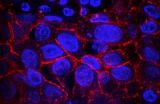(Press-News.org) Vanderbilt University researchers are reporting today that there is insufficient evidence to support the use of medical interventions in adolescents and young adults with autism.
Despite studies that show that many adolescents and young adults with autism spectrum disorders are being prescribed medications, there is almost no evidence to show whether these medications are helpful in this population, the researchers said.
These findings are featured in the Sept. 24 issue of Pediatrics.
"We need more research to be able to understand how to treat core symptoms of autism in this population, as well as common associated symptoms such as anxiety, compulsive behaviors and agitation," said Jeremy Veenstra-VanderWeele, M.D., assistant professor of Psychiatry, Pediatrics and Pharmacology and Vanderbilt Kennedy Center investigator.
"Individuals, families and clinicians currently have to make decisions together, often in a state of desperation, without clear guidance on what might make things better and what might make things worse, and too often, people with autism spectrum disorders end up on one or more medications without a clear sense of whether the medicine is helping."
This research is part of a larger report on interventions for adolescents and young adults with autism that found there is little evidence to support findings, good or bad, for all therapies currently used.
The researchers systematically screened more than 4,500 studies and reviewed the 32 studies published from January 1980 to December 2011 on therapies for people ages 13 to 30 with autism spectrum disorders. They focused on the outcomes, including harms and adverse effects, of interventions, including medical, behavioral, educational and vocational.
Key findings:
Some evidence revealed that treatments could improve social skills and educational outcomes such as vocabulary or reading, but the studies were generally small and had limited follow-up.
Limited evidence supports the use of medical interventions in adolescents and young adults with autism. The most consistent findings were identified for the effects of antipsychotic medications on reducing problem behaviors that tend to occur with autism, such as irritability and aggression. Harms associated with medications included sedation and weight gain.
Only five articles tested vocational interventions, all of which suggested that certain vocational interventions may be effective for certain individuals, but each study had significant flaws that limited the researchers' confidence in their conclusions. The findings on vocational interventions were featured in the Aug. 27 issue of Pediatrics.
Although the prevalence of autism is on the rise, much remains to be discovered when it comes to interventions for this population, the researchers concluded.
As recently as the 1970s, autism was believed to affect just one in 2,000 children, but newly released data from the Centers for Disease Control and Prevention (CDC) estimates that one in 88 children has an autism spectrum disorder. Boys with autism outnumber girls 5-to-1, which estimates that one in 54 boys in the United States has autism.
###Additional investigators on this report include Melissa McPheeters, Ph.D., MPH, director of Vanderbilt's Evidence-Based Practice Center and senior author; Zachary Warren, Ph.D., director of the Vanderbilt Kennedy Center's Treatment and Research Institute for Autism Spectrum Disorders; Julie Lounds Taylor, Ph.D., assistant professor of Pediatrics and Special Education and lead author; Dwayne Dove, M.D., Ph.D., fellow in Developmental-Behavioral Pediatrics; Nila Sathe, M.S., M.L.I.S., program manager, Institute for Medicine and Public Health; and Rebecca Jerome, M.L.I.S., MPH, assistant director, Eskind Biomedical Library.
Their research, Interventions for Adolescents and Young Adults with Autism Spectrum Disorders, was funded by the Agency for Healthcare Research and Quality's Effective Health Care Program and conducted through Vanderbilt's Evidence-Based Practice Center.
Little evidence supports medical treatment options for adolescents with autism
2012-09-24
ELSE PRESS RELEASES FROM THIS DATE:
Media coverage influences value of presidential debates for viewers, study finds
2012-09-24
COLUMBUS, Ohio -- The presidential debates offer viewers a lot of substance about the issues of the campaign -- but postdebate media coverage can undermine the value they have for voters, a new study suggests.
Results showed that postdebate coverage that focused on the debate as a competition led viewers to think less about policy issues. By comparison, coverage that focused on the substance of the discussion increased the likelihood that viewers would come away with specific thoughts about candidates' policy proposals.
The researchers conducted two different studies ...
Scientific discovery offers 'green' solution in fight against greenhouse gases
2012-09-24
A low-cost new material that could lead to innovative technologies to tackle global warming has been discovered by scientists at The University of Nottingham.
The porous material, named NOTT-300, has the potential to reduce fossil fuel emissions through the cheaper and more efficient capture of polluting gases such as carbon dioxide (CO2) and sulphur dioxide (SO2). The research, published in the scientific journal Nature Chemistry, demonstrates how the exciting properties of NOTT-300 could provide a greener alternative to existing solutions to adsorb CO2 which are expensive ...
AIDS patients face risk for esophageal, stomach cancers
2012-09-24
People with AIDS are at increased risk for developing esophageal and stomach carcinoma as well as non-Hodgkin lymphomas (NHLs), according to a new study in Gastroenterology, the official journal of the American Gastroenterological Association.
"People diagnosed with AIDS are living longer due to improved therapies. However, they remain at increased risk of developing a number of different cancers," said E. Christina Persson, PhD, of the National Cancer Institute and lead author of this study. "An elevated risk of esophageal and stomach cancers had been observed before, ...
Managing soil copper in crops irrigated with cattle footbath wastewater
2012-09-24
This press release is available in Spanish.
Getting a head start on stopping soil copper buildup will now be a bit easier, thanks to studies by U.S. Department of Agriculture (USDA) scientists. This research could help Pacific Northwest farmers develop long-term irrigation management strategies to protect crops from potentially dangerous soil copper levels.
Scientists with USDA's Agricultural Research Service (ARS) conducted a laboratory investigation to assess how copper levels in wastewater used for irrigation affected crop performance and soil microbial activities. ...
UNC Lineberger scientists lead cancer genome analysis of breast cancer
2012-09-24
A team of scientists with The Cancer Genome Atlas program reports their genetic characterization of 800 breast tumors, including finding some of the genetic causes of the most common forms of breast cancer, providing clues for new therapeutic targets, and identifying a molecular similarity between one sub-type of breast cancer and ovarian cancer.
Their findings, which offer a more comprehensive understanding of the mechanisms behind each sub-type of breast cancer, are reported in the September 23, 2012 online edition of the journal Nature.
The researchers, including ...
Stratosphere targets deep sea to shape climate
2012-09-24
SALT LAKE CITY, Sept. 23, 2012 – A University of Utah study suggests something amazing: Periodic changes in winds 15 to 30 miles high in the stratosphere influence the seas by striking a vulnerable "Achilles heel" in the North Atlantic and changing mile-deep ocean circulation patterns, which in turn affect Earth's climate.
"We found evidence that what happens in the stratosphere matters for the ocean circulation and therefore for climate," says Thomas Reichler, senior author of the study published online Sunday, Sept. 23 in the journal Nature Geoscience.
Scientists ...
Constraining world trade is unlikely to help the climate
2012-09-24
Instead, researchers were able to pin down a number of factors explaining the pronounced imbalances between emission importers and exporters, the US current account deficit being one of them. Their conclusion: interventions in world trade, like CO2 tariffs, would probably have only a small impact on global emissions.
Steadily growing world trade leads – as earlier research has shown – to a substantial transfer of CO2 from one country to another. The traded goods effectively contain the greenhouse gas, as it originates from the energy used during their production. "Typically, ...
Study reveals genomic similarities between breast cancer and ovarian cancers
2012-09-24
One subtype of breast cancer shares many genetic features with high-grade serous ovarian cancer, a cancer that is very difficult to treat, according to researchers supported by the National Institutes of Health. The findings suggest that the two cancers are of similar molecular origin, which may facilitate the comparison of therapeutic data for subtypes of breast and ovarian cancers.
The researchers, using data generated as part of The Cancer Genome Atlas (TCGA), described new insights into the four standard molecular subtypes based on a comprehensive characterization ...
Mayo researchers develop editing toolkit for customizing zebrafish genomes
2012-09-24
ROCHESTER, Minn. -- Mayo Clinic researchers and an international team of scientists have developed a highly-efficient means of editing zebrafish genomes for research purposes, eliminating a bottleneck that has stymied biomedical scientists from using the fish as a model for human disease. The details appear online today in the journal Nature.
For many researchers, zebrafish are becoming the model of choice for genetic studies. However, the inability to efficiently target genetic modifications has delayed their use by some. The Mayo team used an improved variant of artificial ...
UN, other experts warn of 'water bankruptcy' for many regions after reviewing 200 major global projects
2012-09-24
Bangkok, 24 September 2012 - A study of almost 200 major international water-related projects over the past 20 years has identified a suite of existing and emerging challenges and how science can offer remedies.
The Global Environment Facility (GEF), the largest public funder of projects to improve the global environment and promote sustainable development, partnered with the United Nations University and the United Nations Environment Programme (UNEP) to extract lessons from a portfolio of major transboundary water projects involving investments of more than US$7 billion.
Insufficient ...


